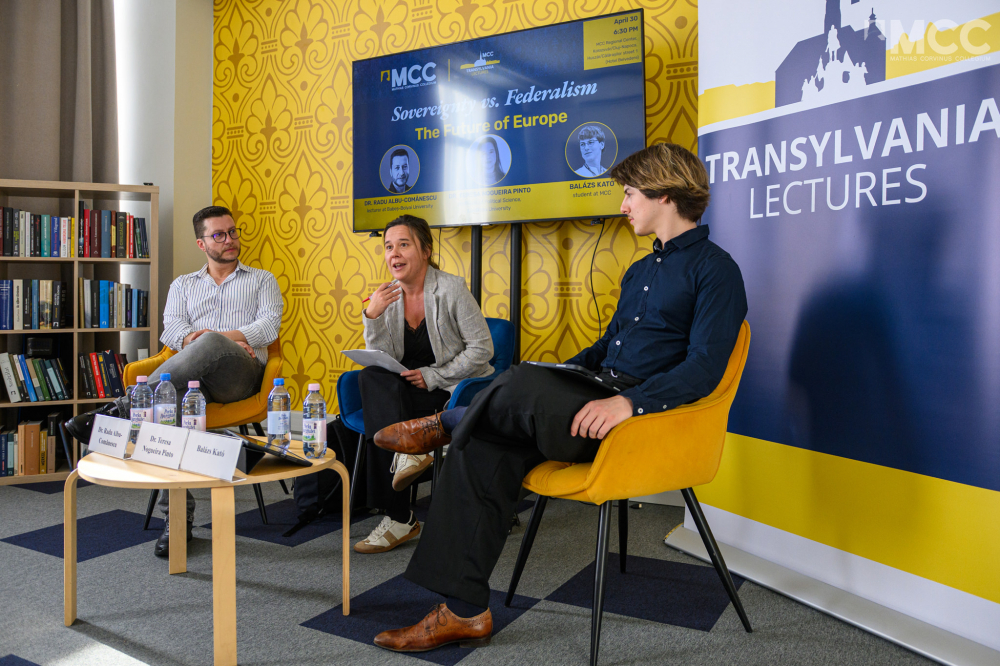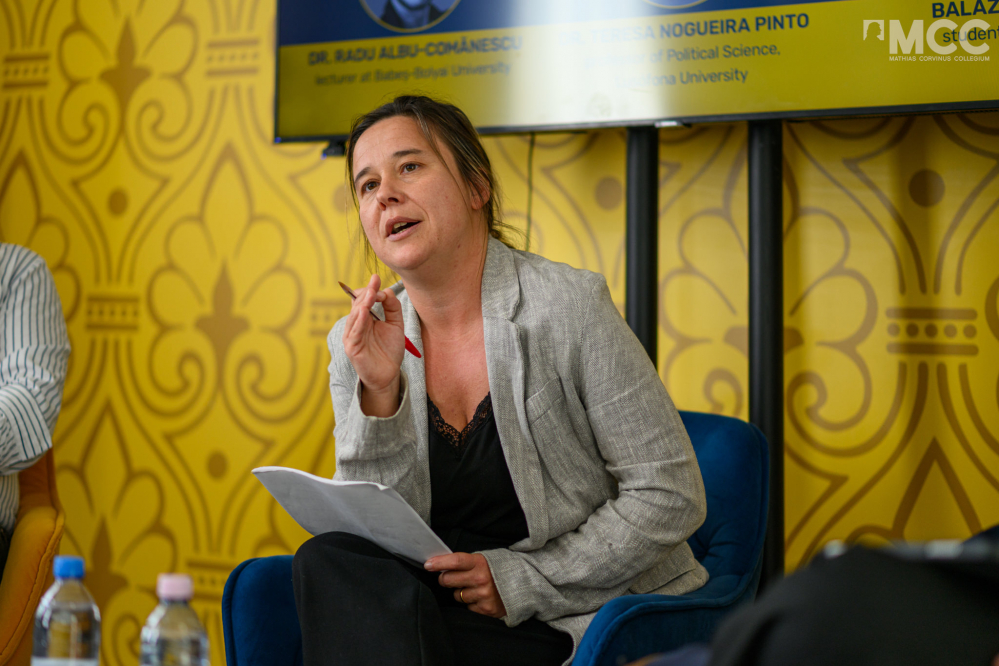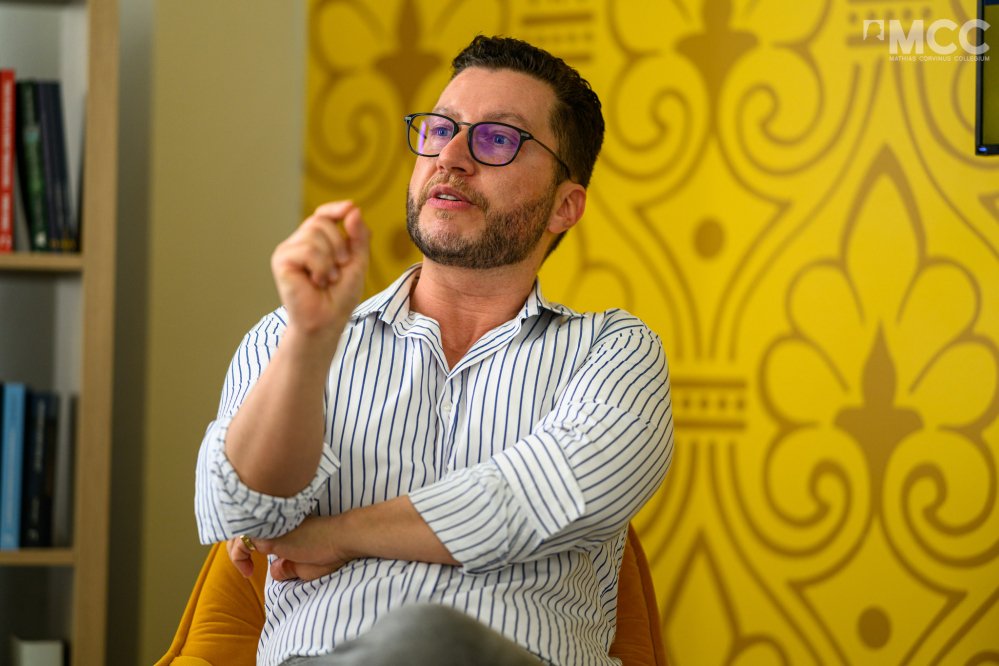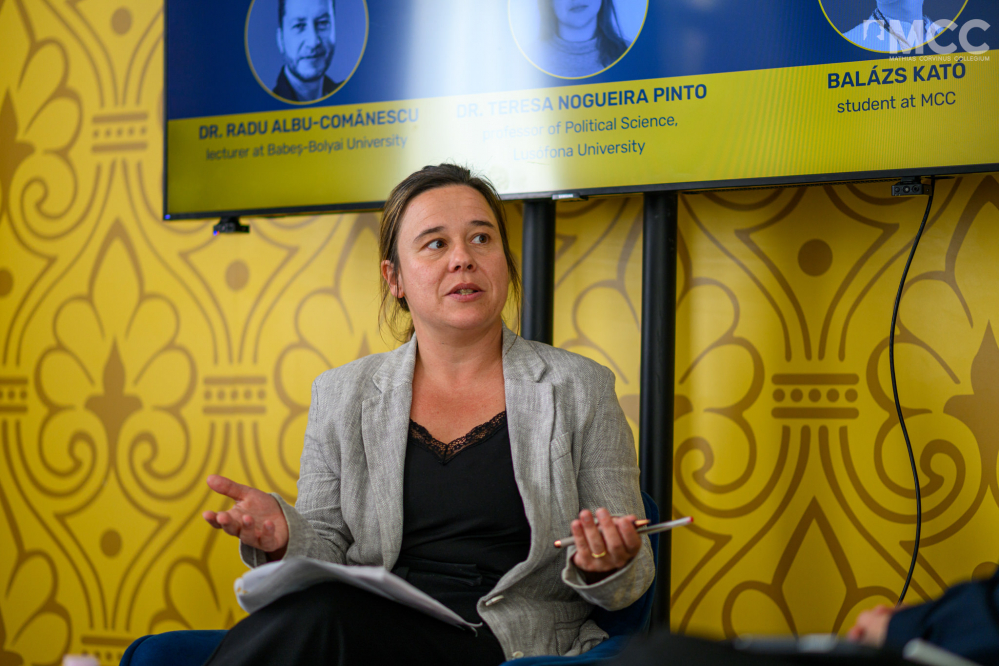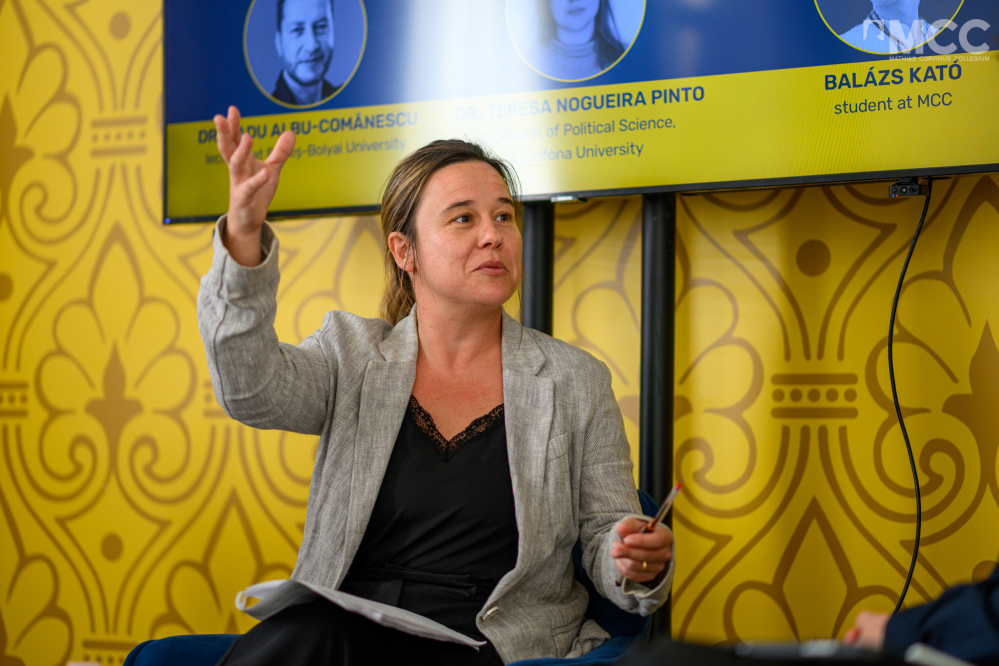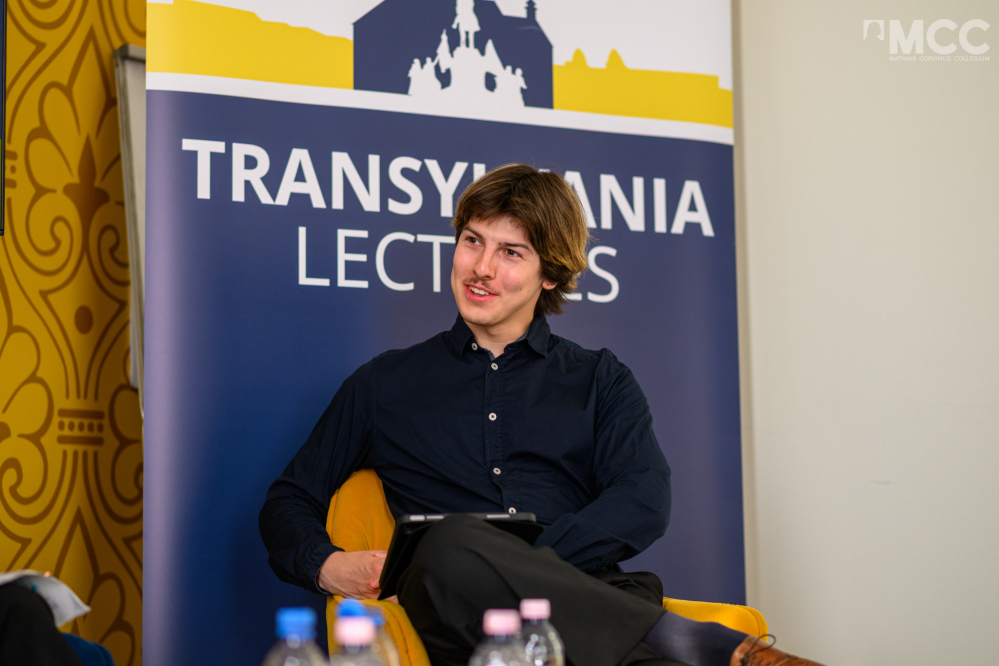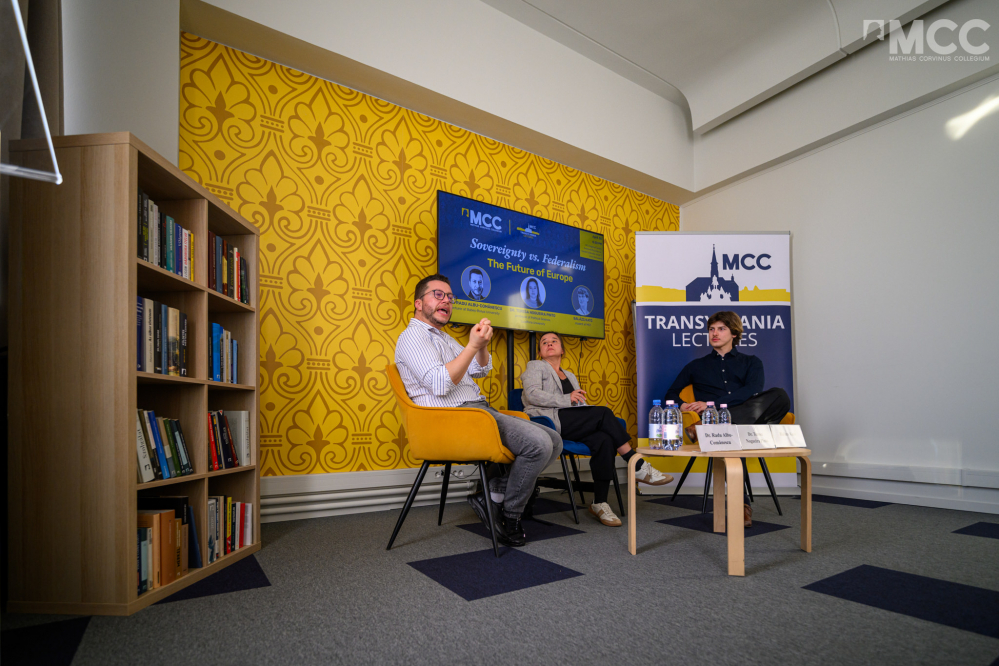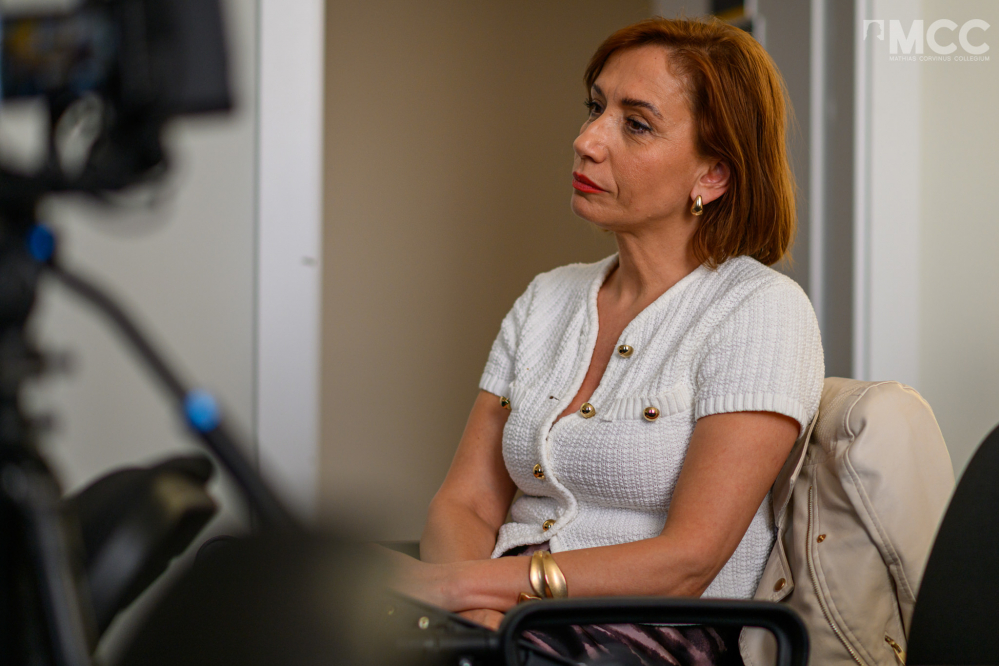Reading time: 4 minutes
How should EU member states balance national sovereignty and European integration? In our modern, globalized world filled with crises, this question is becoming increasingly relevant. At the Transylvania Lectures event on April 30, invited experts examined the complex relationship between national interests and a unified Europe from a practical perspective.
On one side, the case for national sovereignty celebrates the right of each country to protect its own democratic choices, cultural heritage, and national laws. Advocates of a more federal Europe see strength in speaking with one voice, arguing that shared challenges—from economic shocks to climate change—demand shared solutions.
At the late April edition of Transylvania Lectures, the guests were Dr. Teresa Nogueira Pinto, professor of political science and international relations at Lusófona University in Portugal, and Dr. Radu Albu-Comănescu, lecturer at the Faculty of European Studies, Babeș-Bolyai University. The discussion was moderated by Balázs Kató, a student in the MCC University Program, studying psychology at BBU and international relations at Sapientia University.
Regardless of the system chosen, both require compromises from member states. During the discussion, Teresa Pinto introduced the concept of euro-federalism: according to this, Europe would function similarly to the United States, but this raises the question of to what extent member states could retain their national sovereignty—the "United States of Europe" would imply a post-political, post-sovereign world.
The world's major powers (China, India, the United States) all take their sovereignty seriously. In contrast, Europe has visibly lost cohesion in recent decades—this trend is also observable in globally widespread organizations like the UN or the World Trade Organization, whose legitimacy is increasingly questioned by people. The ecperts agreed, that we need to rediscover the common goals, values, and shared convictions that can bring us together again.
Teresa Pinto highlighted three criteria of post-national sovereignty. The first pertains to procedure: a long-term constitutional amendment understandable to all. The second point emphasizes defining our European values and what unites us—these are particularly important when seeking solutions to our challenges. The third point focuses on efficiency: the expert emphasized that a unified European economy, with its current strict regulations, cannot be sufficiently effective now or in the future.
According to Radu Albu-Comănescu, we should not talk about "sovereignty or federalism" but about "sovereignty and federalism." He illustrated his theory with the example of Switzerland: the country has its own currency and army, but all other decisions are made by the cantons themselves—the state gives them great freedom of action, yet they consider themselves a federation.
In the 21st century, the size of individual nations matters — and in a Europe where many countries have smaller populations and economies than a single Chinese city, cooperation is more crucial than ever. According to Radu Albu-Comănescu, European people desire the unification of the continent more than large institutions—but it's important to mention that the nations still know too little about each other. For unity capable of resolving crises to be achieved, countries must understand each other's strategic positions.
Experts agreed that, due to strict regulations, the American and Chinese markets—based on information and technology—have outpaced the still coal- and steel-reliant European economy. Instead of focusing on development, more and more rules are being enforced, which paralyzes innovation. There is also enormous societal pressure on companies (such as in terms of environmental regulations), which deters them.
Radu Albu-Comănescu emphasized the importance of moving toward a green future—but not in such a sudden and drastic way. Europe’s role on the global playing field has become questionable. “The 21st century will not be Europe’s century,” said Teresa Pinto. The continent must reinvent itself, but this is difficult, as it has found itself in one crisis after another for decades.
Radu Albu-Comănescu added that the regulations we know today once contributed to economic growth but have now rendered us uncompetitive. He also noted that we have previously invested more energy into trying to become a global power—yet that energy and drive have since dissipated. European states now lack a will to fight; there is no common goal. Art, mentality, and cultural identity still connect us somewhat, he said, but none of us uses a European-made smartphone—we have lost the technological race, and without that, building a viable future becomes extremely difficult.
Despite all this, the experts agreed that there is a way forward. “People are not against Europe—they are against chaotic Europe,” added Radu Albu-Comănescu, stressing that politicians must let go of their current dogmas and instead create transparent, well-structured systems.
